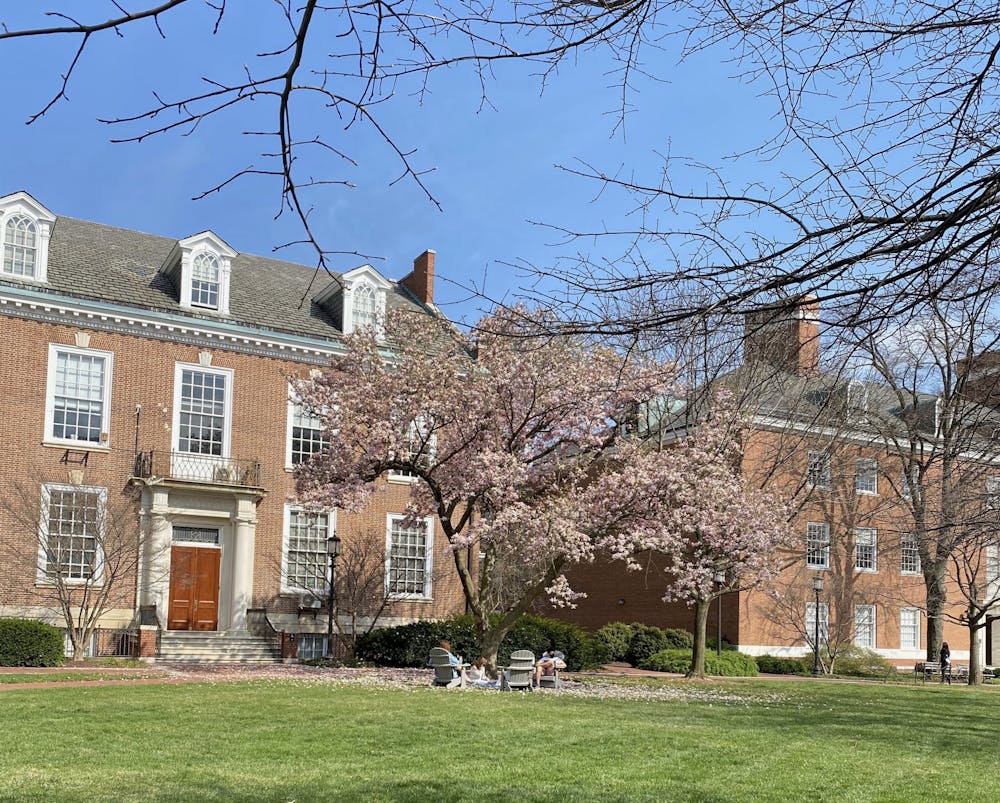The Coalition Against Policing by Hopkins (CAPH) organized a walkout against the University’s proposed private police force on May 3. In 2019, The Maryland General Assembly passed a bill allowing its creation, which Governor Larry Hogan subsequently signed into law. Student opposition culminated in a month-long occupation of Garland Hall, which ultimately ended in the arrest of seven students.
Following the murder of George Floyd last summer, the University announced it would delay all matters related to the private police force for two years. The University also put on hold the Police Accountability Board shortly thereafter, and in an interview with The News-Letter last fall, President Ronald J. Daniels shared that there were no plans of reinstating this board.
In an interview with The News-Letter, CAPH member Colin Bilyeu explained that the walkout was planned in accordance with the Cops Off Campus Coalition, a national organization advocating for alternatives to policing in educational institutions. According to him, the protest was a part of the Coalition’s Transnational Day of Refusal, which included similar walkouts on other campuses across the country.
Bilyeu shared his thoughts on the importance of the walkout.
“[The goal] was to act in solidarity with the Cops Off Campus Coalition and to demonstrate that we’re still here and that we will not be complicit in the University’s systems,” Bilyeu said. “We’re asking for nothing short of an abandonment of plans to make a private police force.”
Bilyeu stated that attendees included undergraduate students, faculty members and even individuals from community organizations.
Sophomore Kevin LaMonica, who attended the protest, participated in the Spring Open House and Overnight Program in his senior year of high school during the sit-in at Garland Hall. To him, Daniels and other University leaders seemed dismissive of student demands. That experience inspired LaMonica to write an op-ed in The News-Letter about police reform.
LaMonica described why he felt the protest was meaningful in an interview with The News-Letter.
“Protests are forms of civil disobedience, but they’re also an avenue for community building and I felt that there yesterday,” LaMonica said.
Bilyeu criticized the University’s attempts at addressing student concerns, arguing that the administration often brushed them aside.
“Even when University leaders have tried to step in and address what we want, they’ve done it in a way that sidesteps the goals of our demands,” Bilyeu said. “The community initiative fund that they announced sounds great in name, but the way they have done it ensures that money is not in the hands of the community.”
Bilyeu added that even though the University has officially halted the creation of the police force, it has continued lobbying against legislation that would limit private policing.
LaMonica emphasized the importance of incorporating more students into the movement.
“One thing that stuck out to me is the need for movement building with younger people at Hopkins — current sophomores, [current] freshmen and incoming freshmen — because I see the two-year delay in the police force by the University not as a delay to allow the University to reevaluate, but as an opportunity for experienced organizers and people in the Garland occupation to graduate and leave, leaving a movement with less momentum,” LaMonica said.





